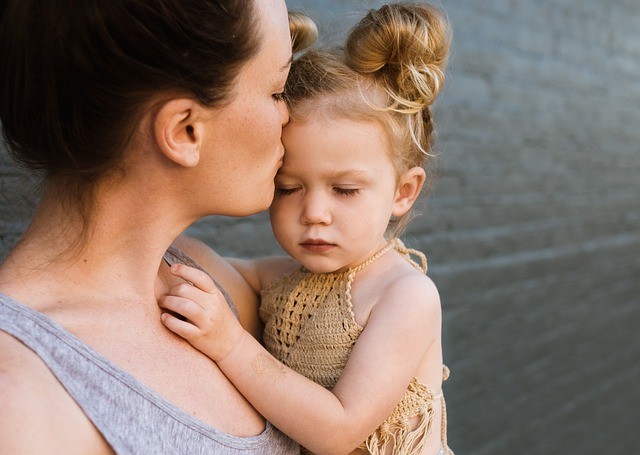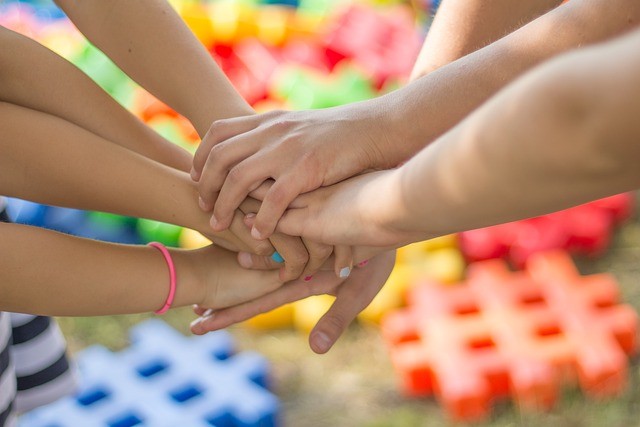Welcome to an enlightening journey into the world of emotional intelligence in children! In this article, we will explore the fascinating realm of emotions and how they shape our little ones’ lives.
From understanding and managing their own feelings to empathising with others, emotional intelligence plays a crucial role in their overall development. So, grab a cup of tea, sit back, and prepare to be amazed by the incredible capacity for emotional growth that resides within our young minds.
What is Emotional Intelligence?
Emotional intelligence refers to the ability to recognize, understand, and manage our own emotions as well as those of others. It involves being aware of our feelings, having empathy for others, and effectively navigating social interactions.
Developing emotional intelligence is crucial for children because it equips them with essential life skills that contribute to their overall well-being and success.
Here are a few reasons why it is important to help children develop emotional intelligence:
- Self-awareness: Emotional intelligence helps children become more in tune with their own emotions and thoughts. This self-awareness allows them to better understand their strengths, weaknesses, values, and goals.
- Empathy: By developing emotional intelligence, children learn how to empathize with others by understanding their perspectives and feelings. This skill promotes positive relationships, effective communication, and cooperation.
- Emotional regulation: Children who possess emotional intelligence are better equipped to regulate their own emotions in healthy ways. They can manage stress effectively and make thoughtful decisions rather than reacting impulsively.
- Social skills: Emotional intelligence fosters strong social skills in children by teaching them how to navigate various social situations successfully. They learn how to communicate assertively but respectfully while considering the feelings of others.
- Conflict resolution: Children who have developed emotional intelligence are more likely to resolve conflicts peacefully by expressing themselves calmly and listening actively during disagreements.
- Academic performance: Research suggests that students with higher levels of emotional intelligence tend to perform better academically due to improved focus, motivation, resilience in the face of challenges, and stronger relationships with teachers and peers.
- Mental health benefits: Emotional intelligence helps promote positive mental health outcomes for children by reducing stress levels, enhancing self-esteem/self-confidence levels while also fostering resilience against adversity or setbacks they may encounter throughout life.
By nurturing these skills early on through various activities such as open conversations about emotions or engaging in role-playing exercises that encourage empathy-building behaviours; we can help set children up for a lifetime of emotional well-being and success.
Recognising & Labelling Emotions
When a child can recognise and label an emotion they’re experiencing, they can learn how to handle it in a more positive way. This is a huge part of developing emotional intelligence.
Here are some suggestions on how to assist children in this process:
- Teach them basic emotions: Start by introducing children to basic emotions such as happy, sad, angry, scared, and surprised. Use simple language and facial expressions to demonstrate each emotion.
- Read books about emotions: Choose age-appropriate books that explore different emotions and discuss the characters’ feelings throughout the story. This can help children understand that everyone experiences a wide range of emotions.
- Use visual aids: Utilise visual aids like emotion charts or flashcards with pictures depicting various facial expressions associated with different emotions. Encourage children to identify which emotion matches each picture.
- Play “Emotion Charades”: Engage in a game of charades where you act out different emotions while your child guesses what you’re feeling. Then switch roles so they can express their own feelings through gestures and facial expressions.
- Encourage open communication: Create a safe space for your child to express their feelings openly without judgment or criticism. Listen attentively when they share their experiences or concerns, validating their emotions along the way.
- Help them identify physical sensations: Explain how certain physical sensations may be connected to specific emotional states (e.g., butterflies in the stomach when feeling nervous). By linking bodily sensations with corresponding feelings, children can better understand their own emotional experiences.
- Model emotional expression: Be a positive role model by expressing your own feelings appropriately and discussing them openly with your child when appropriate (e.g., “I felt proud when I finished my work,” or “I was sad because I missed my friend”).
- Reinforce positive emotional expression: Praise your child when they effectively communicate their emotions, label them correctly, or handle challenging situations in a healthy way. Positive reinforcement will encourage them to continue developing these skills.
Cultivating Emotional Regulation
Cultivating emotional regulation in children is an important aspect of their overall development. It helps them to recognise when they’re experiencing a heightened emotion and to regulate their behaviour in a way that avoids tantrums and outbursts.
Here are some helpful tips to support and encourage emotional regulation:
- Be a role model: Children learn a lot from observing the behavior of adults around them. Show them how you handle your own emotions in a healthy way, such as taking deep breaths when feeling angry or talking calmly when feeling upset.
- Encourage open communication: Create a safe and non-judgmental environment where children feel comfortable expressing their emotions openly. Listen actively and validate their feelings, letting them know it’s okay to experience different emotions.
- Teach problem-solving skills: Help children develop problem-solving skills by encouraging them to think through challenging situations on their own or with your guidance. This can empower them to find solutions rather than becoming overwhelmed by negative emotions.
- Practice mindfulness techniques: Introduce simple mindfulness exercises like deep breathing or guided imagery that can help children calm down during moments of heightened emotion.
- Establish routines and predictability: Consistency in daily routines can provide stability for children, reducing stress levels and helping with emotional regulation.
- Encourage physical activity: Engaging in regular physical activity helps release pent-up energy and promotes overall well-being, which can positively impact emotional regulation.
- Set clear boundaries: Clearly communicate rules and expectations so that children understand what is acceptable behavior while also providing structure for managing their emotions effectively.
- Offer coping strategies: Teach various coping strategies like counting to ten before reacting impulsively, using positive self-talk, taking breaks when needed, or engaging in activities they enjoy as healthy outlets for managing strong feelings.
Remember, cultivating emotional regulation takes time and patience. Be supportive, understanding, and consistent in your approach as you help children develop this essential life skill.
Building Empathy and Perspective-Taking
Helping children to understand and develop empathy is an important skill that will help them to develop relationships throughout their lives. In addition, being able to see situations from different perspectives allows them to solve problems more effectively and see the glass as half full, rather than half empty.
- Teach active listening skills: Help children understand the importance of truly listening to others when they speak. Teach them to ask questions, paraphrase what they’ve heard, and show genuine interest in understanding different perspectives.
- Promote diversity: Expose children to diverse cultures, backgrounds, and experiences through books, movies, or community events. This helps broaden their understanding of the world around them.
- Engage in role-playing activities: Role-playing scenarios can help children put themselves in someone else’s shoes and understand different perspectives better. Encourage them to imagine how others might feel or think in various situations.
- Volunteer together: Engaging in volunteer work as a family can provide first-hand experiences that foster empathy towards those who may be less fortunate or facing challenges.
- Practice gratitude: Encourage children to appreciate what they have by regularly expressing gratitude for the people and things around them. This helps develop empathy by recognizing the positive impact others have on our lives.
- Read books with moral lessons: Choose books that explore themes of empathy, kindness, compassion, or overcoming adversity so that children can learn from fictional characters’ experiences.
- Encourage problem-solving discussions: When conflicts arise between siblings or friends encourage open discussions where each child has an opportunity to share their perspective while seeking solutions that consider everyone’s needs.
- Celebrate differences: Emphasize the beauty of diversity by celebrating differences among individuals—whether it be race/ethnicity, abilities, or interests. Teach children to appreciate and respect these differences.
Problem-Solving & Conflict Resolution
Teaching children problem solving and conflict resolution is an important skill that will benefit them throughout their lives. Here are some helpful tips and creative ideas to make the learning process engaging and enjoyable for children:
- Start with age-appropriate activities: Use puzzles, games, or riddles that require problem-solving skills to engage children in critical thinking. This can be as simple as finding hidden objects or completing a maze.
- Role-play scenarios: Act out different situations where conflicts arise, such as sharing toys or resolving disagreements with friends. Allow children to take turns playing different roles so they can understand multiple perspectives.
- Teach active listening skills: Help children develop active listening skills by encouraging them to pay attention, maintain eye contact, and ask questions when someone is speaking to them. This will help them understand others’ viewpoints better during conflicts.
- Use storytelling: Share stories that highlight characters facing problems or conflicts and how they resolve them peacefully. Discuss the lessons learned from these stories together.
- Collaborative problem-solving activities: Engage children in group activities that require teamwork and collaboration to solve problems together, such as building structures with blocks or creating art projects with limited resources.
- Practice empathy: Teach children about empathy by encouraging them to imagine how others might feel in certain situations of conflict or disagreement. Help them recognize emotions in themselves and others, fostering understanding and compassion.
- Encourage brainstorming sessions: When faced with a problem, encourage children to come up with multiple solutions through brainstorming sessions without judgment or criticism of ideas initially presented.
- Encourage positive self-expression through art: Provide art supplies for drawing, painting, or crafting where kids can express their emotions creatively instead of resorting to negative behaviours during conflicts.
- Model problem-solving skills: Children learn by observing, so be a positive role model by demonstrating effective problem-solving and conflict resolution skills in your own interactions with others.
Modelling Emotional Intelligence
We’ve talked about being a role model and leading by example several times, but how exactly can you do that and show your child emotional intelligence in real time?
- Practice self-awareness: Be aware of your own emotions and how they impact your behavior. Recognize and manage your emotions effectively, as children learn by observing their parents.
- Model healthy coping mechanisms: Show your children healthy ways to cope with difficult emotions such as stress or anger. This could include deep breathing exercises, journaling, or engaging in physical activities like going for a walk or practicing yoga.
- Show emotional regulation: Help your children understand that it’s normal to experience a wide range of emotions but also teach them strategies for managing intense feelings constructively without resorting to aggression or withdrawal. You can do this by showing that you’re doing the same, e.g., taking a quick time out or a deep breath.
- Foster positive relationships: Encourage and show healthy relationships with family members and friends by modelling kindness, respect, active listening skills, conflict resolution strategies within these relationships.
- Talk about your mistakes: Everyone messes up sometimes and it’s important to show your children that when it happens, it’s okay as long you as learn from it. Talk to your children if you feel you could have done something better and explore it together.
Nurturing Emotional Intelligence at Home and School
Emotional intelligence is an ongoing process that starts in childhood and never ends. It’s important to create an emotionally supportive home environment where children feel comfortable talking about their feelings and problems. The same goes for their school environment; encourage your children to talk to their teacher if they need something, or they’re worried about anything.
Collaborating with your child’s teacher to incorporate emotional intelligence in the curriculum is a great idea, and they can also help to provide you with resources and activities that enhance emotional intelligence.
Conclusion
In conclusion, nurturing emotional intelligence in children is a crucial aspect of their overall development. By equipping them with the skills to understand and manage their emotions, we empower them to navigate life’s challenges with resilience and empathy.
Through fostering self-awareness, teaching effective communication, promoting problem-solving abilities, and encouraging empathy towards others, we lay a strong foundation for their future success and well-being.
Together, we can create a world where emotional intelligence thrives and empowers the next generation to build harmonious relationships and make positive contributions to society.




